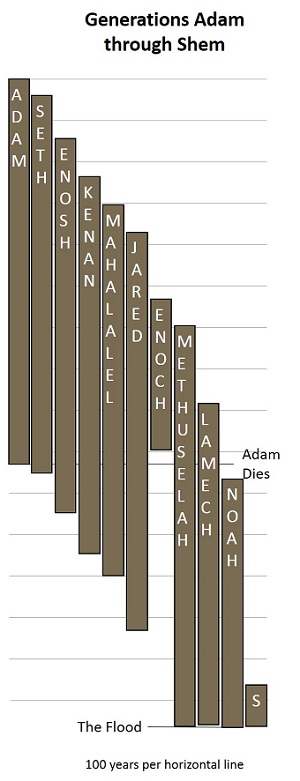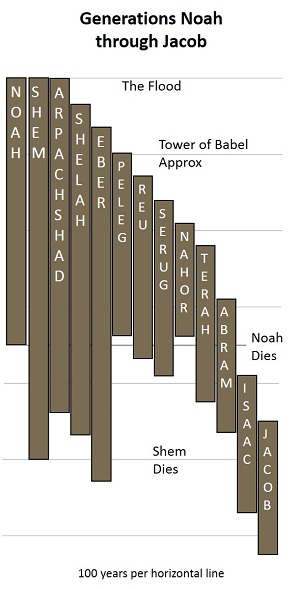THE TAKE AWAY
Knowing God Before Abraham
How do biblical genealogies leave no excuse?
By Kersley Fitzgerald

When God chose the man who would father His nation, it was 19 generations removed from Adam and 9 removed from the Flood. By that time, millions of people had lived and died. What chance did these people have to hear about God and learn how to properly worship Him?
Adam to Noah
Consider this: Adam — the first man, brought to life by the direct breath of God, the man who talked with God directly — was still alive when Noah's father Lamech was born.
In fact, every one of Noah's forefathers was alive when Lamech was born. And everyone but Adam, Seth, and Enoch were still around when Noah was born. Methuselah, the longest-lived man according to records, didn't die until the year of the Flood.
The world was horrible. Everyone did what was right in their own eyes. But one line, at least, had some idea of the worship of God. Noah was called righteous. His great-grandfather, Enoch, followed God so closely that God took him before he died. Whatever Adam taught his children about God was caught by at least one son — Seth — and passed down through his family. So there is no excuse for the descendants of Adam's other children. They had the same responsibility and the same opportunity to learn from the man who had walked with God. Their choices condemned their descendants.
Noah to Abram
At the time of the Flood, when Noah was 600 years old and his sons were about 100, the population of the world condensed again. One father, three sons. We aren't given too much information on the righteousness level of the line from Shem to Abraham, but there must have been some inkling there for Abraham to so willingly follow God. What we do know is that if there are no gaps in biblical genealogy, Noah was alive when Abram was born.

In fact, every one of Abram's forefathers from Noah on was alive when Abram was born.
Noah was the one man declared righteous by God in a world of evil. He watched God work during the Flood, displaying both His holiness and His protection for Noah's family. Noah had seen the Tower of Babel built and deserted and the people spread across the world. And his son Shem had seen it all as well. At the time of Jacob — Abraham's grandson — both Shem and Eber (from which we get "Hebrew") were still alive. If Shem, his brothers, and their descendants neglected to pass on stories of the holiness of God, it's on them, not God.
It is impressive how quickly people can forget God. Maybe Adam was busy with other things when his other sons were growing and he didn't take the time to teach them. Maybe, like Noah's son Ham, an early patriarch was just disrespectful, taking the benefits of how God blessed his parents without following God himself. Disrespect and inattentiveness in one generation lead to ignorance in the next. And the world turns evil in a handful of generations.
So, no, the generations from Adam to Abraham didn't have the Scriptures. But they had the opportunity for stories. They had the potential to ask those who witnessed God's greatness. It is not the fault of God if the world didn't know how to worship Him. It's the fault of parents who didn't teach and children who didn't listen.
Which of course, begs the question: what are we teaching the children we know?
Image Credit: ClickerFreeVectorImages; Untitled; Creative Commons
Tags: Biblical-Truth | Controversial-Issues | History-Apologetics
comments powered by Disqus
Published 6-15-2015

